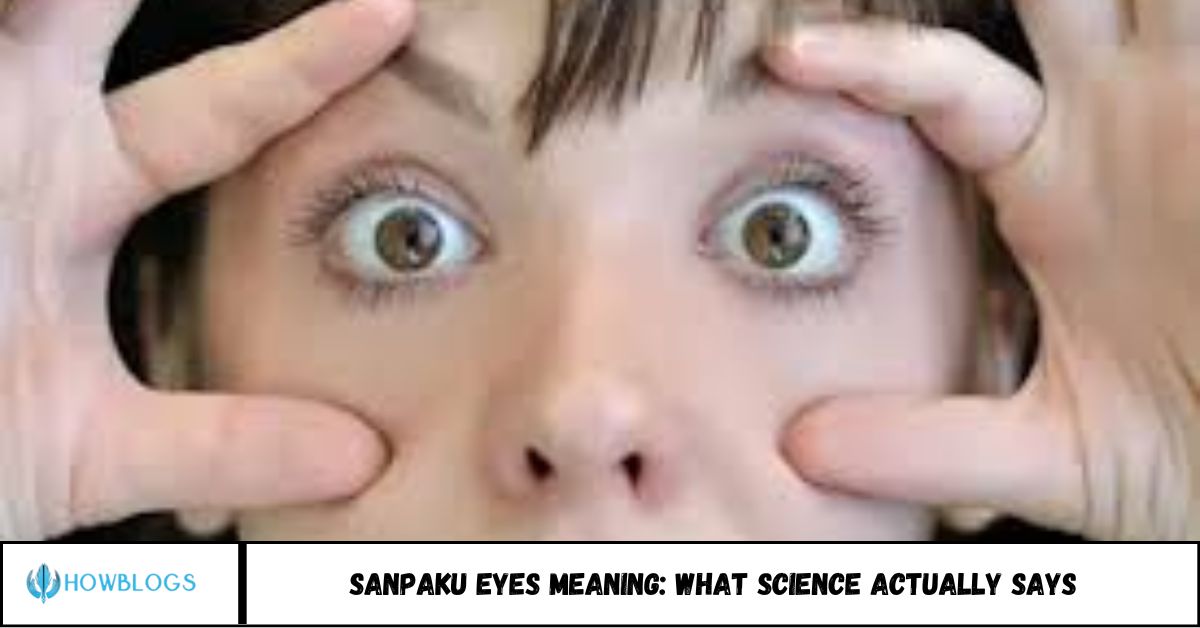Table of Contents
Sanpaku eyes—a condition where the white of the eye is visible either above or below the iris—have long been linked to mysterious traits, personality warnings, and even health predictions. While Eastern traditions see Sanpaku as a spiritual or psychological omen, modern science offers a different perspective. This article explores what Sanpaku eyes really are, the myths vs. facts, and what researchers and eye doctors actually say about this eye feature
Do Sanpaku Eyes Reveal a Hidden Truth?
In pop culture and traditional beliefs, the eyes are often seen as windows to the soul. But what happens when those eyes show too much white?
You may have seen celebrities like Billie Eilish or Marilyn Monroe with “Sanpaku eyes”, where the sclera (the white part of the eye) appears below or above the iris. According to Eastern face-reading philosophy, this is said to signify emotional imbalance, danger, or inner turmoil.
But does science support any of this? Is there a medical explanation for Sanpaku eyes, or are these just exaggerated claims wrapped in superstition?
This article dives deep into:
- What Sanpaku eyes actually are
- The history of the belief system around them
- Scientific explanations and eye anatomy
- Whether health or personality links are valid
- When Sanpaku eyes may signal a real medical concern
What Are Sanpaku Eyes? A Quick Definition
Sanpaku (三白眼) is a Japanese term meaning “three whites.” It refers to when the white of the eye (sclera) is visible on three sides of the iris—either below (yin Sanpaku) or above (yang Sanpaku):
- Yin Sanpaku: White is visible below the iris when looking straight ahead.
- Yang Sanpaku: White is visible above the iris—much rarer—and often associated with intense or aggressive energy in folklore.
The Mythology Behind Sanpaku Eyes
Eastern traditions—particularly Japanese and Chinese face reading—suggest that Sanpaku eyes reflect an imbalance in the body or spirit. Famous macrobiotic diet advocate George Ohsawa even warned that people with Sanpaku eyes were doomed to die tragically.
Notable historical figures often cited include:
- John F. Kennedy
- Princess Diana
- Marilyn Monroe
- Charles Manson
The idea is that Sanpaku eyes are an omen of misfortune, inner chaos, or a warning to others. However, these ideas are cultural and symbolic, not scientific.
What Does Science Say About Sanpaku Eyes?
From a medical standpoint, Sanpaku eyes are not a condition—they’re a visual variation that can occur naturally or result from:
- Eye shape or size (particularly large eyes or small irises)
- Fatigue or stress (drooping muscles can expose more sclera)
- Aging or muscle tension (eyelid retraction)
- Thyroid eye disease (can cause protrusion of the eye)
- Trauma, drug use, or neurological conditions
According to ophthalmologists, no scientific evidence supports the idea that Sanpaku eyes predict behavior, personality traits, or fate.
Key Scientific Insights:
- A 2020 study in Clinical Ophthalmology found that lower scleral show is more common in individuals with larger palpebral fissures (eye openings), especially in younger women.
- Scleral exposure can increase with thyroid dysfunction, Bell’s palsy, or facial nerve issues, but these are medical—not spiritual—issues.
- The iris-to-sclera ratio may influence perceived emotion, but not actual personality traits.
Psychological Perception and Body Language
While science debunks spiritual claims, the perception of Sanpaku eyes may still affect how people respond to someone emotionally. Visible sclera—especially when unusual—can signal:
- Surprise
- Fear
- Discomfort
This is why artists and animators often exaggerate eye whites to convey intense emotion. So while Sanpaku eyes don’t predict who you are, they may impact how you’re perceived—just like posture or facial expressions
When Should You Be Concerned?
In rare cases, a sudden change in eye appearance or increased sclera exposure can indicate:
- Hyperthyroidism
- Grave’s disease
- Ocular trauma
- Neurological conditions
If you or someone you know suddenly develops pronounced Sanpaku eyes, it’s best to consult a healthcare provider or eye specialist.
FAQs
1. Are Sanpaku eyes rare?
Yin Sanpaku (white below the iris) is fairly common. Yang Sanpaku (white above the iris) is rare.
2. Do Sanpaku eyes mean you’re unhealthy?
Not necessarily. They can be natural variations but may signal issues if they appear suddenly.
3. Can Sanpaku eyes be corrected?
If caused by a medical condition, treatments may help. Cosmetic surgery is also an option, though rarely needed.
4. Is there any truth to Sanpaku eye predictions?
There’s no scientific basis for spiritual or personality predictions based on eye shape.
5. What causes someone to develop Sanpaku eyes?
Genetics, fatigue, stress, eye shape, thyroid issues, or aging can all contribute.
6. Can you be born with Sanpaku eyes?
Yes. Many people naturally have scleral show due to eye anatomy and facial structure.
Conclusion
The truth is, Sanpaku eyes are mostly an aesthetic or anatomical trait, not a window into someone’s destiny or character. While cultural beliefs have linked them to everything from mental instability to tragic ends, modern science views them through the lens of physiology and perception.
If you have Sanpaku eyes, there’s likely no reason for concern—unless they’re a new development tied to health changes. In that case, consult a doctor.
Otherwise, embrace your unique look—because your eyes say more about how others feel about you than what’s actually going on inside.

